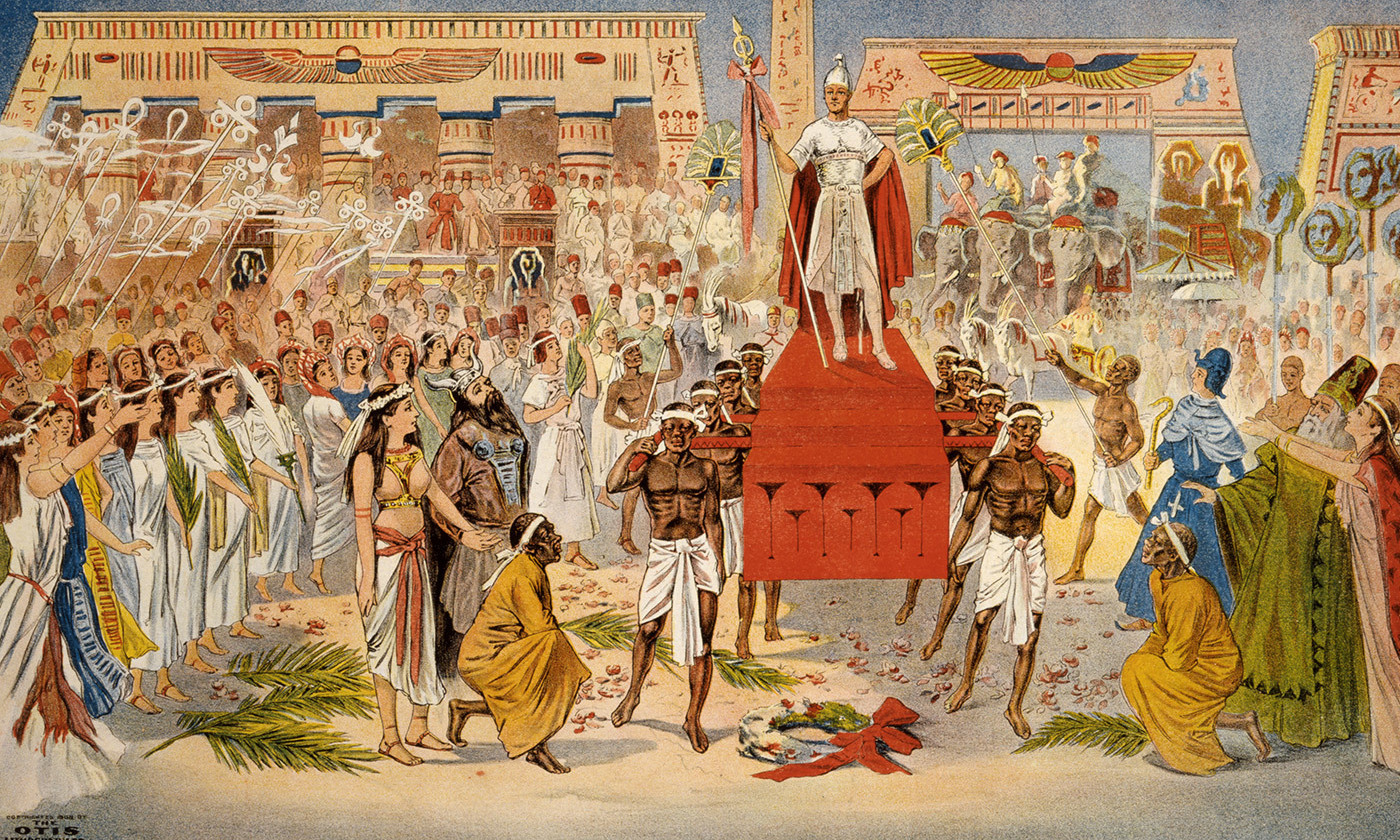Cultural imposition is a pervasive issue that affects people from all walks of life. It is the tendency to impose one’s own culture, values, and patterns of behavior on someone from a different culture or background. This phenomenon can be seen everywhere, from workplace dynamics to international relations.
At its core, cultural imposition is an example of power dynamics in action. Those who are more powerful often use their position to enforce their own beliefs and standards on those who are less powerful. This can manifest in a variety of ways, from ignoring cultural differences to actively pushing one’s own beliefs onto others. In either case, it can be incredibly damaging and lead to a sense of alienation and marginalization for those who feel they have no choice but to conform.
The effects of cultural imposition can be profound and far-reaching. It has been linked with feelings of isolation and exclusion among minority groups, leading to decreased motivation and productivity at work or school. In addition, it can create feelings of resentment and hostility towards the dominant culture, resulting in social unrest or even violence in extreme cases.
One way to combat this problem is by encouraging cultural understanding and respect among individuals from different backgrounds. We must strive to recognize our differences while still recognizing our commonalities as human beings. Allowing for open dialogue between people from different cultures is also key; this gives everyone the opportunity to learn more abot each other’s beliefs and values without feeling threatened or judged for them.
Ultimately, cultural imposition is an issue that affects us all. We must take steps towards creating an environment where everyone feels valued and respected, regardless of their background or culture. Only then can we truly create a diverse yet inclusive society where everyone’s voices are heard and respected equally.
The Effects of Cultural Imposition
Cultural imposition is the practice of imposing one’s own cultural beliefs, values, and patterns of behavior on a person or people from a different culture. It is possile to do this without recognizing cultural differences or intentionally disregarding them. This can be seen in interactions between different cultures and in the way dominant cultures may impose their norms on minority groups. Cultural imposition can also take place when individuals from one culture attempt to influence others from another culture through language, media, or other means. The result can be an uncomfortable situation for both parties as they struggle to understand each other’s beliefs and customs.

Understanding the Meaning of ‘Culture Blind’
Culture blind is an approach to situations or issues that ignores the cultural context of the individuals involved. It occurs when people fail to acknowledge, respect, and understand the differences between cultures and how those differences can influence perspectives, behaviors, and decisions. This often results in a lack of empathy for those from other cultures and can lead to misunderstandings and miscommunication. For example, when someone assumes teir own culture’s norms are universal or expects someone from another culture to think or act in a certain way, they are being “culture blind”. This type of ignorance can lead to problems with intercultural relations and can impede understanding between people from different backgrounds.
The Impact of Cultural Imperialism
Cultural imperialism is a term used to describe the practice of one culture exerting its power, values, and beliefs onto anther culture through control or domination. This can be seen in a variety of ways, such as when a foreign government imposes its language, laws, and customs on an indigenous culture. It also includes instances where dominant cultural practices are forced upon subordinate cultures through media and other forms of communication. Cultural imperialism can also be seen in the form of economic practices that favor certain cultures over others. All these activities can lead to the erasure or devaluation of the native culture’s identity, values, and beliefs. The goal of cultural imperialism is to replace the existing social order with one that benefits those in power and serves their interests.
The Meaning of Ethnocentrism
Ethnocentrism is the belief that one’s own culture or ethnic group is superior to all others, and that its beliefs, values, and practices should be considered the standard. It involves judging other cultures according to the standards of one’s own culture, and often leads to feelings of superiority over other groups. This can manifest itself in different ways, such as a refusal to accept cultural diversity or an unwillingness to interact with people who are different from oneself. Ethnocentrism can also lead to negative stereotyping of other cultures or ethnicities, as well as prejudice and discrimination against thoe who differ from oneself. While some degree of ethnocentrism may be natural since it is a product of our evolved psychology, it can have serious consequences if it goes too far.
The Difference Between Ethnocentrism and Cultural Imposition
Ethnocentrism is a belief system in wich a person or group believes that their own culture is superior to other cultures. It involves a biased view of the world, with one’s own culture seen as the standard by which all other cultures should be judged. Cultural imposition is when one culture or group forcibly imposes its values and beliefs on another culture or subculture. It involves a power imbalance between the two groups, with one group attempting to dominate the other and impose their norms and values onto them. Cultural imposition can involve physical force, economic pressure, or psychological manipulation. The key difference between ethnocentrism and cultural imposition is that ethnocentrism is an attitude based on personal beliefs, while cultural imposition is an act of power and coercion.

The Impact of Cultural Imposition
The term for the imposition of one culture on other cultures is cultural imperialism. This occurs when a politically or economically dominant community seeks to impose aspects of its own culture onto a more vulnerable and nondominant community. Cultural imperialism is ofen seen as an act of cultural domination, which can take many forms including the spread of language, customs, religious beliefs and practices, educational systems, values, standards of beauty and communication styles. This form of domination can have lasting impacts on communities, with some cultures facing the threat of assimilation or even extinction due to the overwhelming influence of foreign cultures. In some cases, cultural imperialism has even been used as a tool for political control or economic exploitation.
The Impact of Cultural Imposition
An example of cultural imposition is when a nurse imposes his or her own beliefs, values and patterns of behavior upon a patient from a dfferent culture without taking into consideration the patient’s cultural background. For instance, in a care setting where there are patients with disabilities, the nurse may assume that all patients should be treated the same way regardless of their culture. This can lead to an inappropriate treatment plan that does not take into account the individual needs of each patient. It is important for nurses to examine their biases and beliefs closely when caring for individuals from diverse cultures and to be aware that each culture has its own unique values and norms.
Understanding Cultural Aphasia
Cultural aphasia is a term coined by American historian Ann Laura Stoler to describe the cultural inability to recognize and properly name things in the world, espcially when it comes to the colonial past of Western societies. This metaphorically implies an inability to think critically about the past and its implications for power and privilege in the present, as well as a lack of understanding of the social, economic, political, and cultural consequences of colonialism. It suggests that while we may be aware of certain injustices associated with colonialism, we are often unable or unwilling to recognize them as such by assigning proper names and thus taking responsibility for them.
Cultural aphasia is often linked with historical amnesia—the forgetting or erasure of key events in our collective past—which can lead to a dangerous normalization of injustice. To address this issue, Stoler encourages us to develop techniques for ‘re-membering’—that is, actively seeking out information about our pasts and critically engaging with it in order to develop an understanding of how colonialism has shaped our present day realities. Only through acknowledging these legacies can we begin to move towards meaningful change.
The Impact of Eye Contact on Different Cultures
In Japanese culture, maintaining eye contact is seen as a sign of disrespect and is generally avoided. People are taught from a young age to keep their gaze low and to avoid looking directly into another person’s eyes for extended periods of time. Making direct eye contact can be seen as overly aggressive or confrontational, which can cause people to feel uncomfortable.
The Impact of Cultural Imperialism: Good or Bad?
Cultural imperialism is a complex phenomenon that can have both positive and negative impacts on the cultures it affects. On one hand, cultural imperialism can bring about greater global understanding and integration of different societies. It can lead to the development of new technologies and products that improve the quality of life for people around the world. Additionally, it can facilitate communication between different communities, thereby enhancing mutual understanding and respect.
On the other hand, cultural imperialism can also have a number of negative consequences. It often leads to the domination of certain cultures over others, resulting in a loss of local identity and traditions. It can lead to the spread of Western ideals of beauty that may be seen as oppressive or damaging to local cultures. Furthermore, it may result in economic disparities between those countries that are able to benefit from globalization, and those that are marginalized by it.
Therefore, it is difficult to say whether or not cultural imperialism is good or bad; its effects depend largely on how it is implemented and how well its potential negatives are managed. In some cases, cultural imperialism can be beneficial; in others, its detrimental effects may outweigh any potential positives. Ultimately, it is important to consider each situation individually befre making any judgments about its overall impact.
The Impact of Cultural Imperialism
Cultural imperialism is an important concept because it highlights the power dynamics that exist between dominant and subordinate cultures. It allows us to understand how certain cultural values, practices, and beliefs can be imposed upon a weaker culture, often times to the detriment of the weaker culture’s own values and traditions. Cultural imperialism can also be used to examine how dominant cultures have shaped our world through their economic, political, and military power. By understanding this phenomenon, we can begin to understand why certain people or groups may have limited access to resources or are excluded from certain social structures. Additionally, cultural imperialism helps us identify which aspects of a culture are under threat of bing lost due to outside influence and which should be preserved in order to protect cultural diversity. Ultimately, by understanding cultural imperialism we can work towards creating a more inclusive society that respects different cultures and values.

The Difference Between Imperialism and Cultural Imperialism
Imperialism is a term used to describe the extension of power or control by a state, nation, or empire over other territories. This can be achieved through military force, economic dominance, or political influence. Cultural imperialism is an extension of this concept, referring to the imposition of one nation’s dominant culture onto another. It is also used to refer to the way in which powerful nations may spread their values and beliefs in order to gain influence over other countries and their citizens.
The key difference between imperialism and cultural imperialism lies in the nature of the control that is being exerted. Imperialism usually relies on physical control such as military occupation or economic domination. Cultural imperialism, on the other hand, involves forcing one culture’s values, beliefs and norms onto another society. This could include things such as language, dress codes, religion and social norms. Cultural imperialism does not necessarily involve physical control but istead works on a more subtle level through influencing people’s beliefs and behaviors.
Examples of Ethnocentrism
Ethnocentrism is the tendency to view one’s own culture or ethnic group as superior to others. It can manifest itself in many ways, such as through criticism of another culture’s practices, an unwillingness to learn about oher cultures, or even a belief that certain cultural practices or beliefs are morally wrong.
Two examples of ethnocentrism include:
1. Believing that one’s own culture is more advanced and sophisticated than any other. This could manifest itself in the form of negative attitudes towards other cultures, or in a refusal to accept new cultural practices and beliefs.
2. Refusing to try foreign food or visit foreign countries due to a belief that they are inferior. This type of ethnocentrism can be seen in people who refuse to try new dishes or visit unfamiliar places out of fear that they may not enjoy them.
The Opposite of Ethnocentrism
The opposite of ethnocentrism is ethnorelativism. Ethnorelativism is the belief that cultures can only be understood relative to one another and that particular behavior can only be understood within a cultural context. This philosophy views each culture as beig equally valid, with its own unique values and beliefs. It opposes the idea of judging one culture by the standards of another, which is what ethnocentrism does. Instead, it encourages people to recognize and appreciate the differences between cultures without placing judgement upon them. Ethnorelativism promotes understanding and respect for cultural diversity and encourages individuals to view other cultures through an open-minded lens.
The Definition of Polycentrism
Polycentrism is a political or cultural system in which there is not one single centre of authority or control, but instead multiple centres that have equal power and influence. It can be seen as an alternative to systems such as monarchy, dictatorship, or even democracy, where one central figure or group holds all the power. In polycentric systems, the different centres work together to form a cohesive whole.
In a polycentric system, each centre has its own set of rules and regulations which are respected by the other centres. This allows for more freedom and flexibility in decision-making than in other systems. Additionally, it allows for different perspectives and values to be taken into consideration when making decisions.
In genetics, polycentrism refers to chromosomes or other genetic structures that have multiple central parts. This can be beneficial because it allows for greater stability within the genome and makes it harder for mutations to occur.
Overall, polycentrism is an interesting concept because it provids an alternative to traditional forms of government or culture. It emphasizes collaboration among multiple centres and allows for more diversity in perspectives and values while still maintaining stability and order within the system.
Conclusion
In conclusion, cultural imposition is a complex issue that has far-reaching implications for both individuals and societies. It involves unequal power dynamics between cultures and can lead to the subjugation of one group’s beliefs and values by another. While understanding cultural differences is important, it is also essential to recognize that cultural imperialism, ethnocentrism, and cultural blindness can lead to oppressive practices and damaging consequences for those subjected to them. The best way to address these issues is through education and collaboration between different cultures in order to foster mutual understanding and respect.
